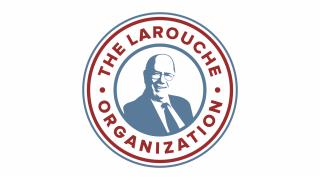Nov. 1—What the suffering world now needs is a Peace of Westphalia-type, new security architecture, based on mutual economic benefit, or the thrashing old order will blow out with no replacement by anything at all, except chaos and doom.
This perspective needs to be discussed much more, and urgently. The events of the day in the trans-Jordan are horrific. In the last 36 hours, two new Israeli Defense Forces air and ground attacks took place, bombing the largest refugee concentration in all of Gaza, the Jabalia Refugee Camp. The fact that it was set up in 1948, and is still here after 75 years, encapsulates what has been long wrong with the persisting geopolitical system. Even the callous Associated Press reported that dazed children were seen wandering after the attacks, carrying other children in their arms.
In response, good people being distraught is not enough. We are on the brink of mass upheaval. The U.S. is rudderless. Those with the courage to speak out—and more are doing so—must foster discussion to address what now must be done.
Among the voices sounding over the past few days, comes the resignation of a high UN official over the intolerable situation. Craig Mokhiber, the UN Director in the New York Office of the High Commissioner of Human Rights (OHCHR), resigned on Oct. 28, charging that the UN has completely failed to stop what he called a “textbook case of genocide” in Gaza. In the U.S., the State Department official who resigned in protest last week, Josh Paul, is doing nearly daily media interviews to rally action over the refusal of governments to act against the atrocities in Gaza. Momentum is building for the national mass rally this Saturday, Nov. 4 in Washington D.C., to stop the killing, and make way for humanitarian intervention and peace.
A stark warning on the extreme danger we are in, comes from a high-placed Russian voice, Fyodor Lukyanov, who, among many posts, is Editor-in-Chief of Global Affairs in Russia. In an interview last week with Komsomolskaya Pravda newspaper, covered by RT today, Lukyanov said, “The ongoing array of conflicts is effectively a new World War…. The international order is breaking down. It was an unpleasant one, based on the fear of mutual destruction, but manageable. Wars in the Middle East have erupted before, but the U.S.S.R. and the U.S.A. intervened and extinguished them until the next conflict. And now I don’t see even a temporary settlement mechanism.”
Helga Zepp-LaRouche, in reviewing this situation, made the point today that “this is how far we’ve come” since there has been no active platform nor discussion for a new security and development architecture, which she called for in November 2022. She stressed that it is urgent for “institutions” to see that this happens now—governments, societies, churches, and other social forces.
Last evening Turkish President Recep Tayyip Erdoğan reiterated a call he made over two weeks ago. Saying, “Our goal is to get our region out of this whirlpool it has been dragged into,” he proposed that, “to this end, a ceasefire should be declared first and then the path to a permanent peace should be cleared.” He reiterated his insistence on an “International Peace Conference on Palestine-Israel,” and in addition said that, “the establishment of a new security mechanism in cooperation with the regional actors is necessary.” Türkiye is “ready to take responsibility if such a step is taken.”
In the United States, an important initiative comes this week from The LaRouche Organization. It has prepared a document for mass circulation, titled, “Peace Through Development for Palestine and Israel—The LaRouche Oasis Plan,” whose printed pamphlet version comes off the presses at the end of this week. It is 24 pages, and includes the petition, “Implementing a Global Approach To End the Cycle of Violence in Southwest Asia.”
Let us take action now.






